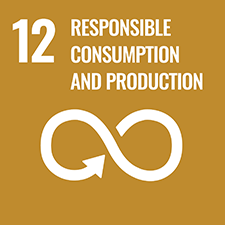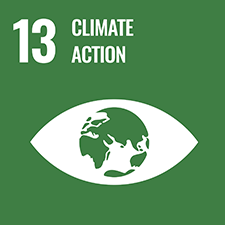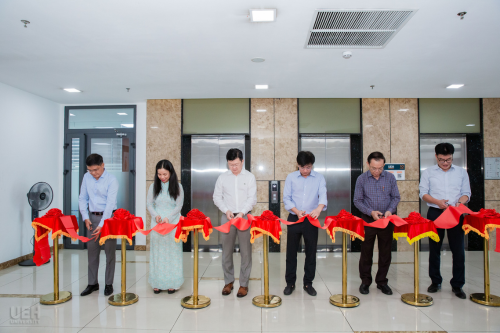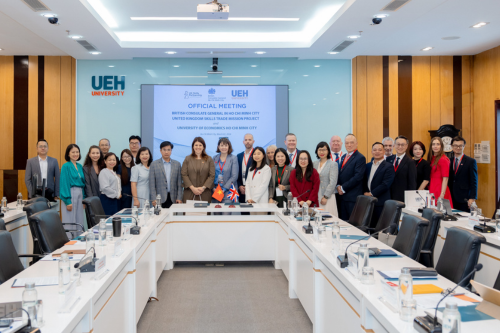Marks as affirmation regarding UEH’s training position in 2024
05 Feb, 2025
At the University of Economics Ho Chi Minh City (UEH), training has always been considered a central pillar in the five strategic pillars towards sustainable development goals. In 2024, through efforts to improve the overall quality of input and the training programs according to international standards, integrating knowledge, technological skills and sustainable development, UEH has achieved many successes in training activities, fulfilling their mission as a launching pad for a generation of global citizens and contributing to socio-economic development.
In the past year, UEH has made a strong mark in training through a strategy of innovation and development of multidisciplinary and interdisciplinary training programs, not only meeting the requirements of society or training in the fields that are the strengths of the school but also gradually moving towards proactively empowering learners.
The process of building, operating and managing training programs is built according to the model of advanced Universities in the world, helping UEH proactively update and build programs with modern content closely following international standards and the national and international socio-economic development trends. Up to the present time, UEH has 19 undergraduate and Master's programs recognized by FIBAA and 07 programs meeting ASEAN standards (AUN-QA). According to the Shanghai Rankings, UEH's Finance program is ranked 38th in the world while its Economics and Management programs are respectively ranked 201-300 and 301- 400 in the world. UEH is also the first and the only university in Vietnam to achieve FIBAA quality standards for higher education institutions in 2022. These achievements demonstrate UEH’s strong commitment to ensuring comprehensive quality, continuous improvement, international integration, creating a dynamic and creative environment for learners.
Attempts to improve comprehensive input and output quality - training a generation of global citizens
In 2024, with the transition from "Admission - Career Orientation" to "Sustainable Career Orientation", bringing to the learning community an understanding of the profession, diversifying the choice of multidisciplinary, interdisciplinary, and cross-disciplinary training programs, most of UEH's programs have met their admission targets. In particular, new programs and fields listed as ArtTech, Technology Management, Intelligent Control and Automation have also completed the admission tasks well with high entrance scores.
The admission and communication process has been innovated, applying information technology and combining support and incentive policies to attract learners. The two breakthroughs this year results from the exceeding expectations of the number of learners at short-term centers, and the efforts to successfully maintain a stable admission scale over many years, affirming UEH's role as a leading University in the Southern region, in the Mekong Delta region and the whole country.
The admission periods recorded an increase not only in quantity but also in UEH learners’ quality, thanks to the attempts to diversify admission methods. Students admitted to UEH are those who have achieved academic results of excellent or higher, with an international English certificate equivalent to IELTS from 6.0 or TOEFL iBT from 73 points or higher, and are mostly those from gifted schools and excellent students at the provincial/municipal level. This is the foundation for recording the high rate of excellent graduation at UEH (K 46 of UEH graduated with a rate of nearly 80% excellent and distinction), demonstrating the correct path of the university in the admission strategy.
UEH - Vinh Long also maintains a stable admission scale, with high entrance scores. After 5 years of operation, the Campus has reached a training scale of 3,000 students at different levels and systems. With the mission of providing high-quality human resources for the Mekong Delta region, UEH Vinh Long not only builds training programs according to UEH's common standards but also closely integrates with the reality in the region. The first generation of new graduates of the Campus graduated in 2024 with 100% ranked as Good, Excellent, and had jobs immediately after graduation, affirming the quality and suitability between the training program and the needs of the local labor market.

Focusing on the factors of “Multidisciplinary” and “Sustainability” according to the Glocal Training pillar
Developing training in a multidisciplinary direction, with diverse choices, serving multiple subjects and lifelong learning needs, UEH deploys a variety of training products for all levels: Vietnamese, Partial English, Full English programs; Talented Bachelor program (ISB); Asean Coop program; Dual major and Integrated Dual major programs; Domestic and international student exchange programs; International joint and dual degree programs with prestigious universities in the world; and Master's and Doctoral programs.
With a multidisciplinary, interdisciplinary and transdisciplinary approach, the knowledge of a field of study at UEH is designed to intersect in the interaction between that field and many different fields. Not only focusing on maintaining its training position in key majors/specialties listed as Business, Economics, Law and Public Administration, UEH is also a pioneer in bringing interdisciplinary majors, keeping up with the trends of the times in the field of Technology and Applied Design. By 2024, UEH will have 13 multidisciplinary undergraduate programs to meet modern trends and human resource needs for future generations listed as Technology and Innovation, Digital Media and Multimedia Design, Financial Technology (Fintech), Marketing Technology (Martech), Digital Business, Robotics and Artificial Intelligence (Robot & AI), Logistics and Supply Chain Technology Engineer (Logtech), Information Security, Information Technology, Computer Science, ArtTech, Intelligent Control and Automation or Master's Degree in Technology Management. In particular, the programs at UEH are provided in deep and broad expertise, with the goal that after graduation, students can take on different career positions in a field or related fields. These are efforts to create a generation of dynamic, flexible and responsive global citizens to approach a constantly changing labor market today.

Developing training in a sustainable direction, UEH has been gradually incorporating knowledge related to global issues and the 17 United Nations Development Goals (17 SDGs) into 56 training programs. In particular, the outstanding difference is that UEH students are equipped with knowledge in 6 subjects responding to current trends, including Introduction To Data Science, Soft Skills, Entrepreneurship, Psychology, Design Thinking, and Sustainable Development, in which the Sustainable Development subject focuses on providing the most necessary and updated knowledge regarding sustainable development, solving the challenges of the world today.
In addition, UEH has started to implement training programs with specializations in sustainable development, with 15 subjects integrating sustainability into course materials and modules. The courses equip learners with development thinking and sustainable action in a constantly changing environment in Vietnam and around the world, including Master's program in Economics and Environmental Management of the School of Economics, COB-UEH; Agribusiness program of the School of Economics, COB-UEH; Joint dual degree program - Master of Smart and Innovative City Management and Master of Human Ecology and Technology.
UEH's extracurricular programs are also integrated with sustainability. Nearly 100 practical educational activities, competitions, seminars, events with topics related to sustainable development, environmental protection, green technology, green economy, green university, circular economy and sustainable urban areas and so on were held at UEH in 2024, fully equipping learners with sustainable knowledge and skills.

Accompanying learners and the community for the career of "lifelong learning"
Taking learners as the center, UEH actively creates a flexible learning environment, anytime, anywhere with open learning resources and diverse learning tools; concurrently, increasing the application of technologies in training activities listed as gamification, simulation, AI application, XR and studio lab, etc. UEH University diversifies its training methods, gradually empowering learners to practice and apply in practice; focusing on practical experiences through teamwork, field trips, projects, implementing real projects, solving problems, scientific research, or following orders from businesses, locally and globally.
Implementing the lifelong learning policy, UEH ensures that every individual has the opportunity to learn and develop themselves, regardless of gender, ethnicity or circumstances - not only for UEH learners but also extending to all subjects in the community. These include policies on scholarships, equity in education, extracurricular programs, student exchanges to supplement knowledge and skills, and activities to accompany localities in training courses, community knowledge transfer projects, and organizing short-term courses for businesses.
Specifically, in 2024, UEH allocated 70 billion VND in scholarships for university-level students in various forms, and nearly 200 international student exchange scholarships at leading Universities in Asia and Europe. In particular, UEH will implement support programs for students in the northern provinces affected by storm No. 3 (YAGI) in 2024 to share and to accompany the learners’ difficulties affected by the storm and the flood after the storm.
In the past year, UEH signed 12 consulting and transfer contracts with partners and conducted 50 policy review studies at the request of state and local agencies in the form of presentations and proceedings. The university has implemented training programs for local officials and leaders like Master of Public Policy in Advanced Management, Master in Smart City Management, Master of Advanced Management in Public Management and so on along with short-term training courses, aiming at the goal of sustainable development, in the Southeast region and the Mekong Delta (Dong Nai, Tay Ninh, Ba Ria - Vung Tau, Vinh Long, Long An, Dong Thap, Ben Tre and more).
UEH also promotes their training strengths by coordinating the development of short-term training programs to update knowledge for leaders and senior managers of business units, especially those with state capital and national defense. Typical examples include Vietnam Electricity Group, Vietnam Rubber Industry Group, University of Medicine and Pharmacy Ho Chi Minh City, University of Medicine and Pharmacy Hospital, Military Hospital 175, Liksin Printing and Packaging Corporation, 16 Company Limited (16th Army Corps). This is to meet the demand for high-quality human resources in the public sector to implement the strategy of strong socio-economic development in accordance with the policies of the Party and the Government. Short-term training courses for middle and senior leaders ordered according to the needs of businesses such as Ho Chi Minh City Book Distribution Joint Stock Company - Fahasa, Hoa Sen Group, etc. are the next successful steps of UEH in the journey of "life-long learning", spreading knowledge to the community and accompanying businesses in sustainable development.
In addition, in 2024, UEH inaugurated the Mekong Delta Center for Innovation and Entrepreneurship (MCIE) with the mission of promoting knowledge and building a startup ecosystem in the region. Together with the Institute of Innovation, UEH has supported the incubation of 32 new startup groups this year, affirming their pioneering role in developing the innovative startup ecosystem in Vietnam.

With a pioneering vision and strong commitment, University of Economics Ho Chi Minh City continues to affirm their position as a leading university in Vietnam and the region, constantly innovating and integrating internationally in training activities. In the future, UEH will continue to develop multidisciplinary, interdisciplinary and sustainable training programs and to build a flexible and modern learning ecosystem to serve not only the needs of learners but also actively contribute to the sustainable development of society.
New and photos: Department of Training, Department of Quality Assurance and Internal Control





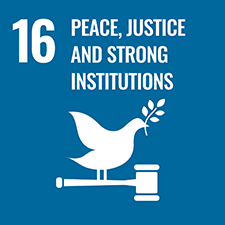
![[Research Contribution] Modernizing and Elevating Vietnamese Higher Education: Creating Breakthroughs in High-Caliber Human Resource Development and Talent Cultivation, Leading Research and Innovation](/images/upload/thumbnail/ueh-thumbnail-639083193174001549.png)
![[Research Contribution] Sustainable Manufacturing: A Driving Force for the Green Economy and the Challenges Ahead](/images/upload/thumbnail/ueh-thumbnail-639082294182922007.png)
